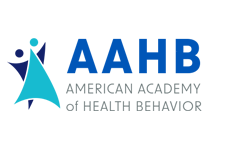Abstract
Increasing autonomy and potential engagement in risky health behaviors during adolescence creates a critical time for oral health and nutrition health promotion. A Social Cognitive Theory-based oral health promotion program was developed and piloted in an under-resourced urban high school. The program was designed to improve health literacy regarding oral health, nutrition, and risky health behaviors that influence oral health through didactic lessons and interactive in-class group activities. In this pilot study, twenty-four students participated and completed both pre-/post-program surveys (mean age=15.6 years [SD=0.97], 63% female; 75% Black; 46% food insecure). Over one-third (38%) of students had not visited a dentist in the past year (67% male; 56% Black, 44% food insecure). While health literacy slightly increased from pre- to post-program, the increase was not significant. The limited positive findings may be related to small sample size in this pilot, as well as implementation challenges that occurred: lack of partnership buy-in, turnover and vacancies, scheduling conflicts, low attendance, and available but inaccessible dental care. Lessons learned from the challenges can inform future program planning and implementation.
Author ORCID Identifier
0000-0002-4266-1830
Creative Commons License

This work is licensed under a Creative Commons Attribution-Noncommercial 4.0 License
Recommended Citation
Marshall, Allison N.; Jenkins, Kiana M.; Fuentes, Carlos G.; Tran, Dylan; Mejia, Karen N.; Djukic, Maja; Mungia, Rahma; Testa, Alexander; Alvarado, Flor; and Hernandez, Daphne C.
(2024)
"Nourishing Smiles: Challenges and Lessons Learned from Implementing an Interprofessional School-based Oral Health and Nutrition Literacy Program for Adolescents,"
Health Behavior Research:
Vol. 7:
No.
4.
https://doi.org/10.4148/2572-1836.1255




